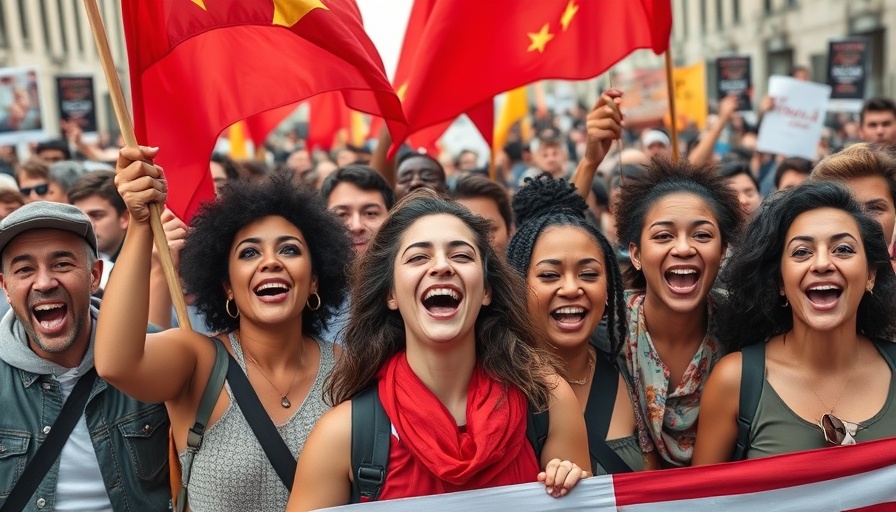
The Discourse on South African Refugees: A Clash of Narratives
The topic of South African refugees and the complex race dynamics surrounding them evokes strong reactions from various factions in the U.S., particularly within conservative circles. In recent discussions, highlighted by events in South Africa, refugees from that nation have drawn attention as they face extreme violence and persecution, primarily based on their ethnicity—specifically, their status as white farmers.
In 'South Africa Refugees Expose the Left's Hatred of White People', the discussion dives into the complexities surrounding race and refuge in South Africa, revealing critical insights that warrant a deeper analysis on our end.
The Current Refugee Crisis in South Africa
Recent reports have indicated a grim picture for white farmers in South Africa, who claim they are victims of racially charged violence. This alarming trend sees an estimated 50 to 60 Afrikaner farmers killed each year, directly linked to the country's actions to 'correct' historical injustices. Such stark circumstances stand in contrast to many refugees who leave their countries in search of improved living conditions rather than fleeing from life-threatening violence.
Media Representation and Political Discourse
Many observers argue that mainstream media is largely silent on the persecution these South Africans face. The reluctance to acknowledge this crisis is seen as part of a larger narrative where varying degrees of oppression receive disproportionate coverage based on race, which has sparked heated debate among conservatives regarding the integrity and responsibility of media outlets.
Reflections on Immigration and Identity
As political leaders propose pathways to citizenship for South African refugees, the conversation shifts to America’s values and identity. Many within conservative circles advocate for a fairer immigration policy that considers one's gratitude and willingness to assimilate. South African refugees often align with American values, facilitating their integration within the fabric of society. In stark contrast, high-profile protests by other immigrant groups, often accompanied by foreign flags, highlight a perceived lack of allegiance to America.
Conviction and Identity: A Call for Compassion
As Americans engage in this ongoing dialogue, it is crucial to weigh the facts and discern empathy from ideology. Recognizing the struggles of South African refugees does not negate the experiences of other immigrant populations. Instead, it calls for a balanced understanding of what it means to be a refugee in today's geopolitical landscape, where the fight for democracy and freedom is a universal concern.
Conclusion: A Conservative Appeal for Compassion and Clarity
The plight of South African refugees serves as a reminder of the larger global refugee crisis and our dual responsibility to acknowledge suffering without losing sight of justice, equity, and America’s foundational values of freedom and opportunity. As this conversation continues, we must strive to make informed decisions rooted in principles that elevate humanity without bias.
 Add Row
Add Row  Add
Add 




Write A Comment